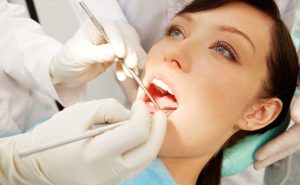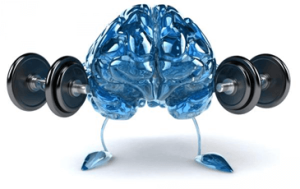Stop me if you’ve heard this one before: you’ve just bought yourself a cold ice cream cone on a hot summer day, and you go in for a nibble when – ouch! – pain shoots through your teeth. Or maybe this one: you’re minding your own business, eating your supper, when suddenly your jaw starts to pop.
What’s going on? Are these serious oral health problems? How can you know for sure?
We’re going to talk about all of this and more in this brief piece – that means we’ll be attempting to pack in a lot of information in a short time. Before we delve into all that, though, let’s get to the main takeaway from this article:
The only way to identify an oral health problem, for sure, is to see your dentist and/or doctor. Medical professionals are trained to identify problems – everything else is just guesswork.
So if you’re ever worried or unsure about an oral health problem, and you don’t know what steps you should take, see a medical professional.
With that out of the way, let’s take a look at some common oral health problems and the symptoms you’ll see:
The most common symptoms of oral health problems
Let’s start with a list of some common symptoms that might indicate something is amiss. These include:
- Tooth sensitivity
- Tooth pain
- Gum pain/swelling/redness
- Bleeding gums
- Bad breath
- Tooth discoloration
- Broken or chipped tooth
- Dry mouth
- Difficulty chewing
- Sore/swollen jaw
That’s a lot of symptoms – and each of them can have different causes. In fact, you can have a number of these symptoms at the same time, and each symptom can be caused by a different condition or trigger.
The problem with self-diagnosis
That brings us to the biggest difficulty when it comes to self-diagnosis – there are way too many variables to guess at what oral health problems you might have.
Say, for example, you have sensitive teeth. The cause could be gum disease – it could also be a cracked tooth. It could simply be that your enamel has worn thin, causing the sensitive dentin beneath to be exposed. You might also have a cavity.
All of those conditions (and more), just for one symptom.
A symptom like dry mouth can be even more confusing. Sometimes, dry mouth is caused by rare diseases. Other times, it’s caused by prescription drugs. You might also get dry mouth if you’re just not drinking enough water, or if you’re smoking too much. In other cases, dry mouth is caused by a combination of these factors.
So how are you supposed to know when to go to the dentist?
When to see your dentist
You should be going for a check-up at least once a year – many dentists even recommend getting a cleaning done twice a year. Cleanings help you get rid of calculus, which is important – calculus (better known as tartar) is at the root (pun intended) of many oral health problems.
As mentioned at the top, if you’re not sure, it’s a good idea to at least give your dentist a call. That said, you might not want to go to the dentist for a pop in your jaw that you only experience once, or for a brief bout of sensitivity that goes away.
Here are some guidelines for when you should see your dentist:
- When two or more symptoms are occurring simultaneously
- When a symptom is lasting for a long period of time
- When discomfort from a symptom is negatively impacting your life
Uncommon symptoms you should talk to your dentist about
You should see your dentist right away if you have:
- A chipped or broken tooth
- A tooth that falls out
- An accident that causes oral trauma
- A lump (especially an irregular lump) in your mouth
- Bleeding sores
- Sudden changes in the way your teeth fit together
Lumps, bleeding, and sudden changes in your bite can all be signs of oral cancer. The others are all dental emergencies. In either case, go to your dentist right away – it’s better to be safe than sorry.
So, how do you identify an oral health problem? You don’t – medical professionals do. We hope this guide has given you some insights as to what those oral health problems can be, and when you should go see your dentist.



